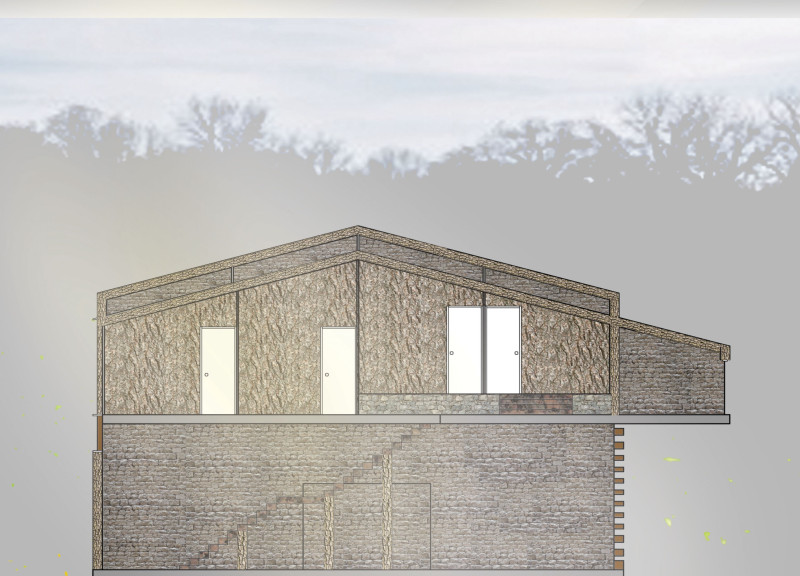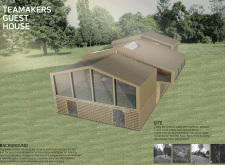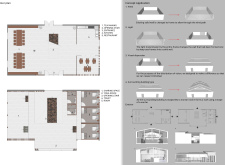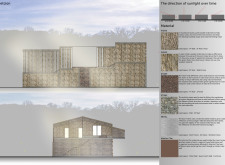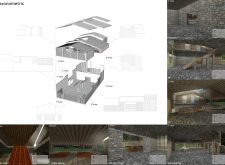5 key facts about this project
The Teamakers Guest House project combines the soothing practices of tea-making and meditation within a thoughtfully designed space. Located in a landscape of solitary trees, marshes, and historic farms, the design aims to create a facility that serves both guests and the community. The emphasis is on harmony with nature, designed to enhance the visitor experience through its function and surroundings.
Architectural Concept
The layout organizes important spaces such as the tea-making area, kitchen, restaurant, and yoga room. Each area connects in a way that encourages movement and interaction among guests. The open stair at the center acts as a pathway, allowing people to flow easily from one space to another. This thoughtful arrangement supports group activities while providing areas for personal reflection.
Natural Light and Airflow
Natural light and airflow play essential roles in the design. The choice to replace solid walls with a frame system improves ventilation and indoor comfort. Strategic placement of openings allows sunlight to fill the spaces, creating a warm environment. This connection between inside and outside encourages guests to engage with the surrounding landscape.
Contextual Design
Attention to the surrounding context influences the architectural choices made in the project. The roof design mirrors shapes found in nearby buildings, promoting visual continuity. This careful consideration of context reinforces the project’s respect for its environment and enhances its overall presence.
Material Usage
Material selection is another important aspect of the design. Reused wood emphasizes sustainability and resourcefulness, while stone adds various colors and textures, enhancing the visual experience. Metal elements, particularly in the door frames, reflect sunlight in a subtle way, contributing to the overall aesthetic without overwhelming it.
The design fosters an inviting atmosphere where visitors can enjoy both personal reflection and shared experiences. Every detail, from the flow of spaces to the choice of materials, works together to create a place that resonates with the natural beauty of its surroundings.


